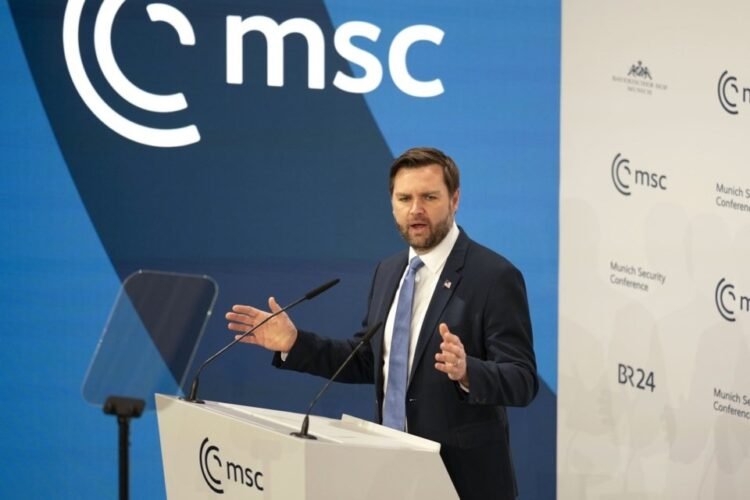The prestigious Munich Security Conference began on Friday, February 16, in Germany, with a primary focus on finding a resolution to the war in Ukraine. A high-level delegation from the new U.S. administration, led by J.D. Vance, Vice President to Donald Trump, is attending the event.
As Trump’s official representative, J.D. Vance is scheduled to meet with Ukrainian President Volodymyr Zelensky on Friday evening on the sidelines of the conference.
A day prior, Trump had announced that the U.S. delegation would be meeting with Russian representatives in Munich, and that Ukraine had also been invited. However, according to media reports, no official Russian delegation is present at the conference.
Uncertainty Surrounding U.S.-Russia-Ukraine Talks
Following Trump’s announcement, Kyiv issued a statement on Thursday, making it clear that it does not expect any direct meeting with Russian representatives at the conference.
This comes after Trump’s phone call with Russian President Vladimir Putin earlier in the week. On Wednesday, February 14, Trump had revealed that he and Putin had made “progress toward ending the war in Ukraine” and had agreed to immediately designate teams to begin negotiations. Trump added that he planned to contact Zelensky to inform him of these developments.
The announcement, which made no mention of Europe’s role in the talks, triggered a strong response from the European Union. In an official statement, the EU reaffirmed its commitment to Ukraine’s sovereignty and territorial integrity, stressing that any negotiations with Russia must include both Ukraine and European representatives.
Europe’s Growing Concerns Over U.S. Position on Ukraine
The Prime Minister of Bavaria, Germany, formally welcomed J.D. Vance upon his arrival in Munich, where European leaders are eager to engage with senior officials from Trump’s new administration, including:
- Marco Rubio, U.S. Secretary of State
- Keith Kellogg, Trump’s Special Envoy for Ukraine
- Pete Hegseth, U.S. Secretary of Defense
Among them, Hegseth’s recent remarks at the NATO defense ministers’ meeting in Brussels caused significant concern. He made two controversial points:
- Ukraine should not expect to reclaim the territories occupied by Russia.
- Ukraine will not be joining NATO in the foreseeable future.
These statements sparked backlash from analysts, who accused Trump of yielding to Putin and conceding to Russia’s key demands.
European leaders, including Kaja Kallas, the EU’s Foreign Policy Chief, and French President Emmanuel Macron, expressed frustration over the U.S. stance, describing it as a retreat and a capitulation to Moscow.
U.S. Defense Secretary Defends Position Ahead of Munich Conference
In response to criticism, Pete Hegseth defended the U.S. position in Brussels before departing for Munich. He rejected accusations of “betrayal” and reiterated that European nations should take greater responsibility for their own defense instead of relying on the U.S.
This aligns with one of Trump’s long-standing priorities—pushing European allies to increase their military budgets. Over recent years, this pressure has led to a sharp rise in European defense spending in an effort to reduce dependence on the United States.
Key Discussions at the Munich Security Conference
One of the first panel discussions at the conference is titled:
➡️ “Doing More with Less America? Strengthening Europe’s Defense”
Later today, Ukrainian President Volodymyr Zelensky is set to participate in a crucial session:
➡️ “The Future of U.S.-Ukraine Security Cooperation”
As the conference unfolds, global attention remains fixed on how U.S. and European leaders navigate the complex and urgent challenge of ending the war in Ukraine while maintaining transatlantic unity.

 English
English



























































